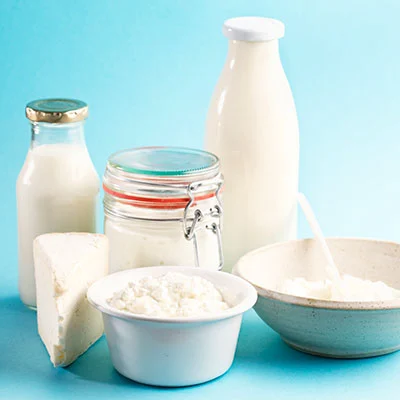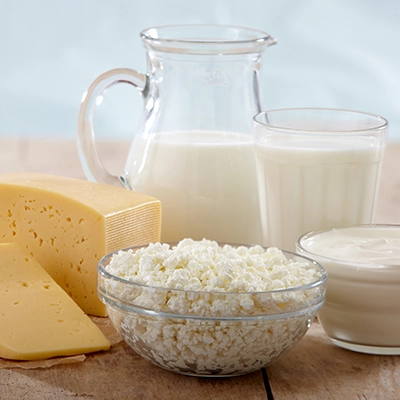Ask Dr. Dairy: Can Cheese be Part of a Healthy Eating Plan?
In this series, Dr. Greg Miller, Ph.D., FACN, answers some common questions received from the health and wellness community.
Question: Can cheese be part of a healthy eating plan?
Answer: With so many types of cheese available, it can be hard to know which ones to choose. The good news is, cheese can be part of a balanced, nutritious diet when eaten in moderation.
While some people limit cheese based on its fat content, a growing body of research suggests that eating dairy foods, regardless of fat content, are associated with improved bone health, especially in children and teens, and reduced risk of cardiovascular disease, Type 2 diabetes and lower blood pressure in adults.
If you’re watching the fat in your diet, try a single serving of Parmesan or Romano (1.5 g fat/Tablespoon) or part-skim mozzarella (4.5 g fat/ounce) are great picks. Also consider reduced-fat options of cottage cheese, ricotta, Cheddar, Swiss, Parmesan, Colby, Muenster, provolone, Mexican blend or American.
If you have other specific health issues not related to fat content, here are some delicious options to meet your needs:
- Watching lactose in your diet? Due to an aging process, natural cheeses contain minimal lactose. Try Cheddar, Swiss, Monterey Jack or mozzarella.
- Want gluten-free options? Good news: Most cheeses are gluten-free! Try natural, hard varieties, such as Cheddar, Gouda, Monterey Jack, Parmesan or Swiss.
- Looking to lower the sodium in your diet? Try Swiss or ricotta, which have lower sodium. Also try lower-sodium varieties of Colby-Jack, provolone, Muenster, mozzarella or Cheddar.
- Need more calcium in your diet? A serving of Swiss, Cheddar, mozzarella, Monterey Jack, Gouda, queso blanco, Mexican blend or Colby all fit the bill.
- Looking for more protein options for your diet? Try a serving of Swiss, cottage, ricotta, mozzarella, Monterey Jack, Cheddar, Gouda, Colby, provolone, Mexican blend or Muenster.
No matter which cheese you choose, you can feel good knowing that most are a good source of calcium, high-quality protein and phosphorus, which are all important for building and maintaining healthy bones.
If you still need help sorting out what you have been reading and hearing about cheese and health, this blog post may help.
If you have a question on dairy foods and health you would like me to answer in an upcoming column, please leave it in the comment section below or send me a message on Twitter @DrDairy50.
This post was originally published on 6/2/2017.















